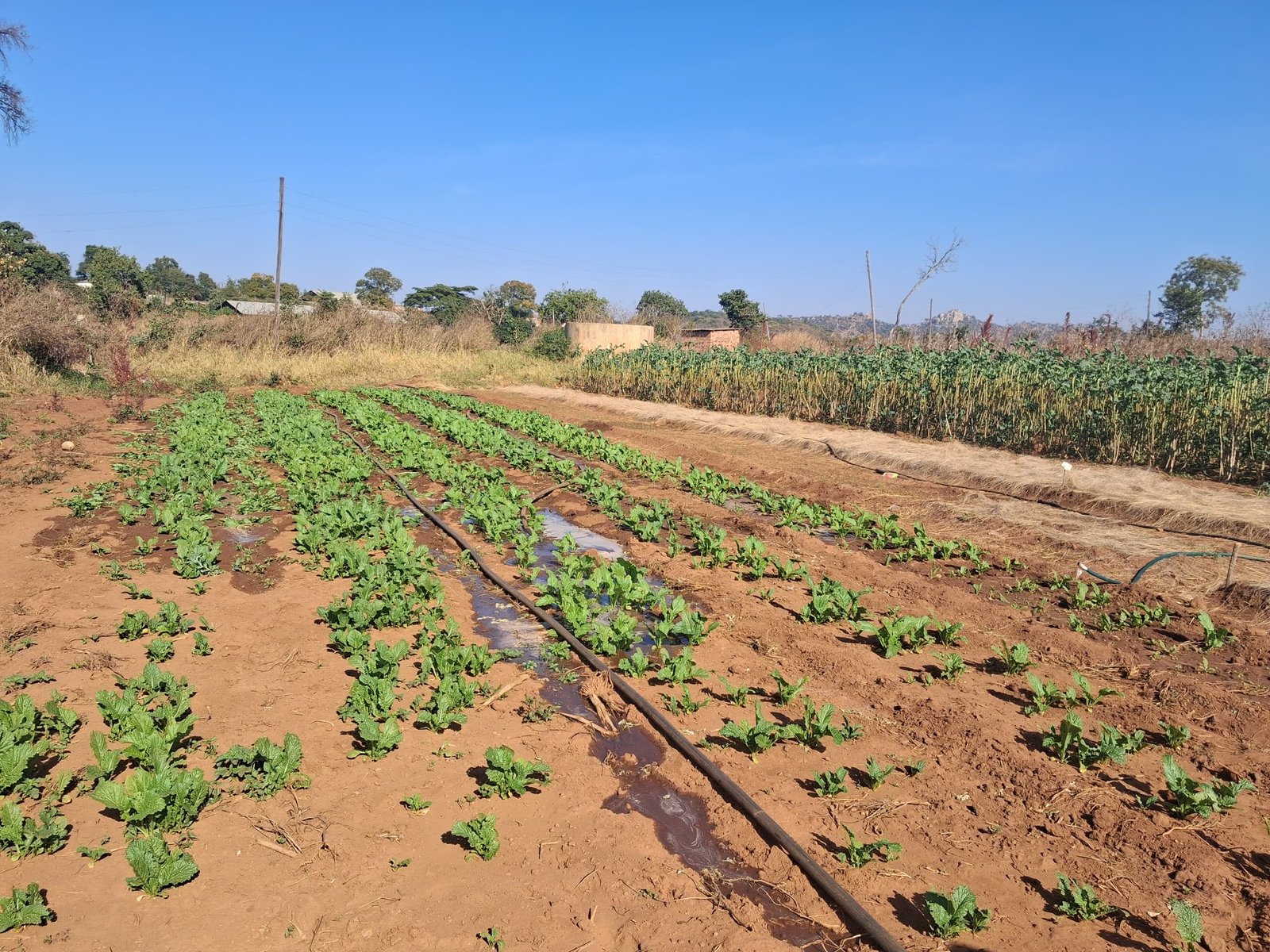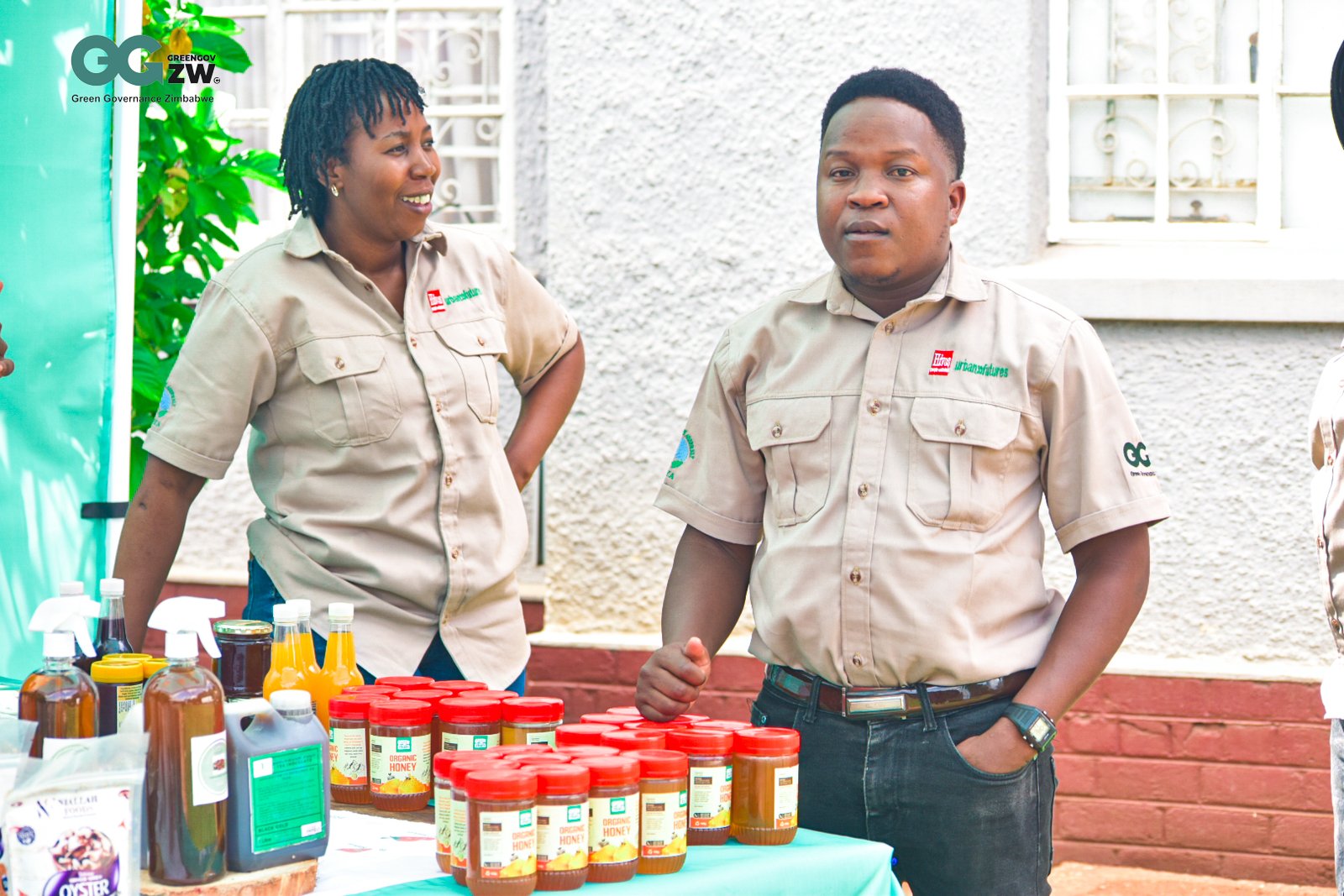By Yeukai Kaponda
Located about 40 kilometers from Harare’s Central Business District, Chibvuti Farm in Goromonzi South District has long been known for its fertile soils and strong agricultural output. Now, this close-knit A1 farming community is showing how rural farmers are bravely confronting the harsh realities of a changing climate.
Despite being situated in Region 2, historically a reliable zone for rainfall, Chibvuti farmers have not been spared from prolonged dry spells, unpredictable seasons, and pest invasions. Yet, they continue to produce food, feeding both their families and the nation.
In the early hours of a chilly morning, Climate Newsroom spoke to Mr. Vitalis Mirisawu (48), a dedicated farmer already tending to his field.
“We are not spared from the rest of the world when it comes to climate change,” he said.
“But we are responding by adopting sustainable practices. This winter, we are focusing on crops that require less water so that we can conserve our limited supply to last us until November.”
In Chibvuti, farmers are making changes to survive the shifting climate. Many have begun adjusting planting calendars to match irregular rainfall patterns, while early morning irrigation has become routine to preserve water.
With the cost of fertilisers rising and pest outbreaks becoming more frequent, several farmers have started using organic manure and natural repellents.
“We are using organic manure, especially for vegetables. It is safer for the soil and our health,” Mr. Mirisawu added.
To gain a technical perspective, we also spoke with Mr. Edgar Chizema, an Agritex officer serving the Goromonzi South area. He acknowledged the mounting toll climate change is taking on smallholder farmers in the region.
In response, many are now embracing climate smart agriculture, a mix of techniques including early morning irrigation, mulching and planting drought tolerant crops in a bid to protect their harvests and livelihoods.
“What is encouraging is that communities like Chibvuti are not giving up. Through government support and training, we are promoting climate-smart agriculture, including mulching, intercropping, and water harvesting,” he said.
“We need to invest more in localized weather information and affordable irrigation technologies so that farmers can plan better.”
Equally inspiring is the resolve shown by women farmers, who make up the majority of the agricultural workforce in Chibvuti. Among them is 52-year-old Grace Mazuru, a mother of five, who has spent decades working the land. Speaking while tending to the community vegetable garden, Mazuru said years of erratic rainfall have forced her to adapt to more resilient crops and collective action.
“Farming is our lifeline. I have started growing sweet potatoes and small grains that do not require much water. I have also joined a community garden project with other women to make sure we always have something to put on the table.”
For Mrs. Mazuru, the future of farming lies in unity and information sharing.
“We teach each other, support each other, and pray together. That keeps us strong.”
Her story reflects a broader shift among women farmers in the region, who are embracing sustainable practices and working together to safeguard their families’ food security.
Despite mounting climate pressures, the Chibvuti farming community is finding ways to adapt. Through local innovation, strong community ties and a spirit of perseverance, farmers here are not only coping, they are quietly driving change. By adopting climate-smart practices and working together, they are helping to shape a more resilient future for Zimbabwe’s smallholder agriculture.
Smallholder farmers play a crucial role in Zimbabwe’s food security, producing the bulk of the country’s food. According to the Food and Agriculture Organization (FAO), over 70% of the population depends on agriculture for their livelihoods, with smallholder farmers accounting for a significant portion of this production.
Despite their importance, smallholder farmers face numerous challenges, including climate change impacts, low soil fertility, reliance on rain-fed systems, and limited access to markets and financial services. These factors contribute to their vulnerability and underscore the need for targeted support to enhance their resilience and productivity.





